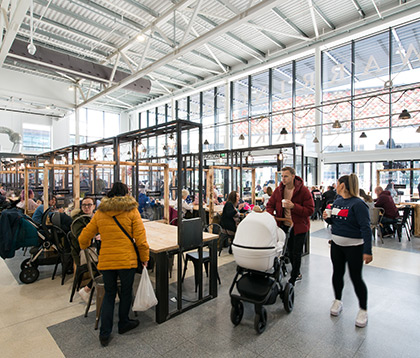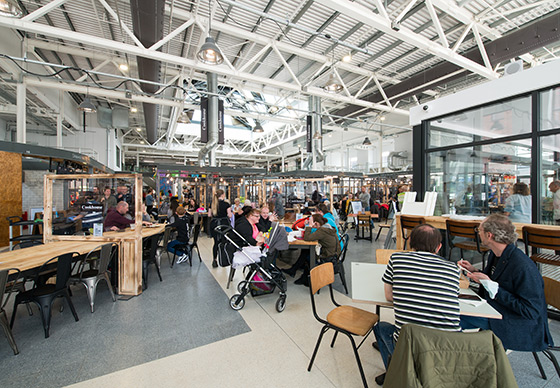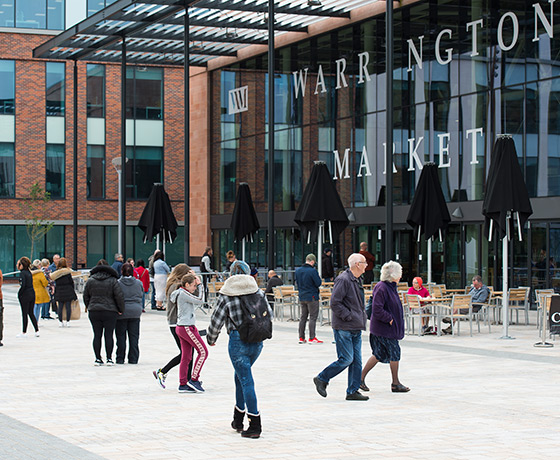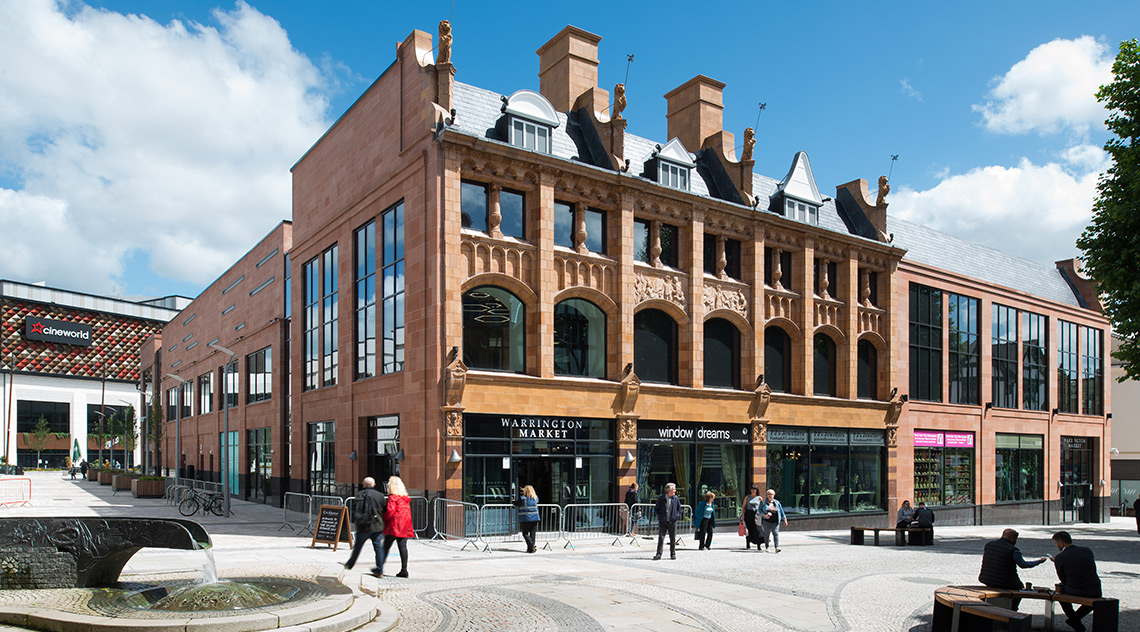Masterplanning and the
meeting of minds
Private sector repurposing needs to be seen through the lens of the local authority
Sustainable repurposing requires a meeting of minds at the masterplanning level, even for island sites.
Across the Muse business, we’re increasingly being asked to look holistically at alternative uses for shopping centres that either local authorities have acquired to gain control of their town centre, or by institutional owners struggling with the rise of vacant units and reducing rental income. More recently of course this has been understandably exacerbated by the unprecedented effects of the Covid-19 pandemic.
It’s quite telling that the institutional owners tend to focus purely on their own asset – looking at what they can do within the red lines of their ownership in a bid to stem the loss of revenue and protect their balance sheet. However, local authorities start from a much wider viewpoint, and ask the question as to how they can increase economic growth in their areas, which drives social prosperity and in turn, the success of their town centre. Only then do they focus on the asset itself.

Of course councils have the ability to take this wider, long-term view, but in any event, they’re entirely right in their approach, and now more than ever, public-sector intervention is crucial if our towns and cities are to thrive in adversity. What’s key here is courage. As a developer, we must have the courage of our convictions to look forward and take calculated risks where necessary. It is the same for local authorities to have the courage not to waiver from this approach, keep the faith and continue to promote
regeneration. Essentially what was right for our towns and cities immediately prior to the pandemic will likely be right for the long term. Covid-19 has merely accelerated the changes that were already happening in these areas.
Times Square, Warrington

You simply must take a look at the repurposing of a failing asset through a wide-angle lens to understand the strengths of the area, along with its heritage and aspirations for the future. From there, you can look at opportunities repurposing the asset will create for the wider area, its challenges and how that creates the key ingredients to what the town or city needs to succeed.
Take our Time Square development in the heart of Warrington town centre for example, which is a scheme we feel is a standard bearer in town centre repurposing and regeneration.
Initially the area was home to an old shopping centre, with a market that was becoming tired and not fit for purpose. Its layout and location in the town centre acted as barrier to the adjacent areas, which in turn promoted anti-social behaviour. To arrest the issues, the council stepped in with our support to give the Bridge Street area a new purpose, with the over-arching objective to bring families back to the town. This has been achieved by developing a family leisure experience with a cinema and new bars and restaurants, underpinned by high-quality civic office space, while providing a 10am to 11pm European-style market facility to calm the ‘wet led’ drinking culture of the neighbouring streets and enhancing footfall from the neighbouring Golden Square development.

What has been delivered in Warrington - and in many towns and cities we serve - has been an unqualified success, together with the council we’ve created a destination in its own right where people can work and relax, with high-quality public realm, increased connectivity and footfall, which has in turn created future opportunities to bring much-needed homes back to the town centre.
There are opportunities now for the public and private sector to come together, use their collective experience and wisdom, to repurpose our towns and cities to be the engine rooms of our economic revival and create schemes that will stand the test of time.
Success requires a pragmatic, joined up approach from both sides, where the local authority can see through the lens of the developer and the developer can see through the lens of the local authority.







